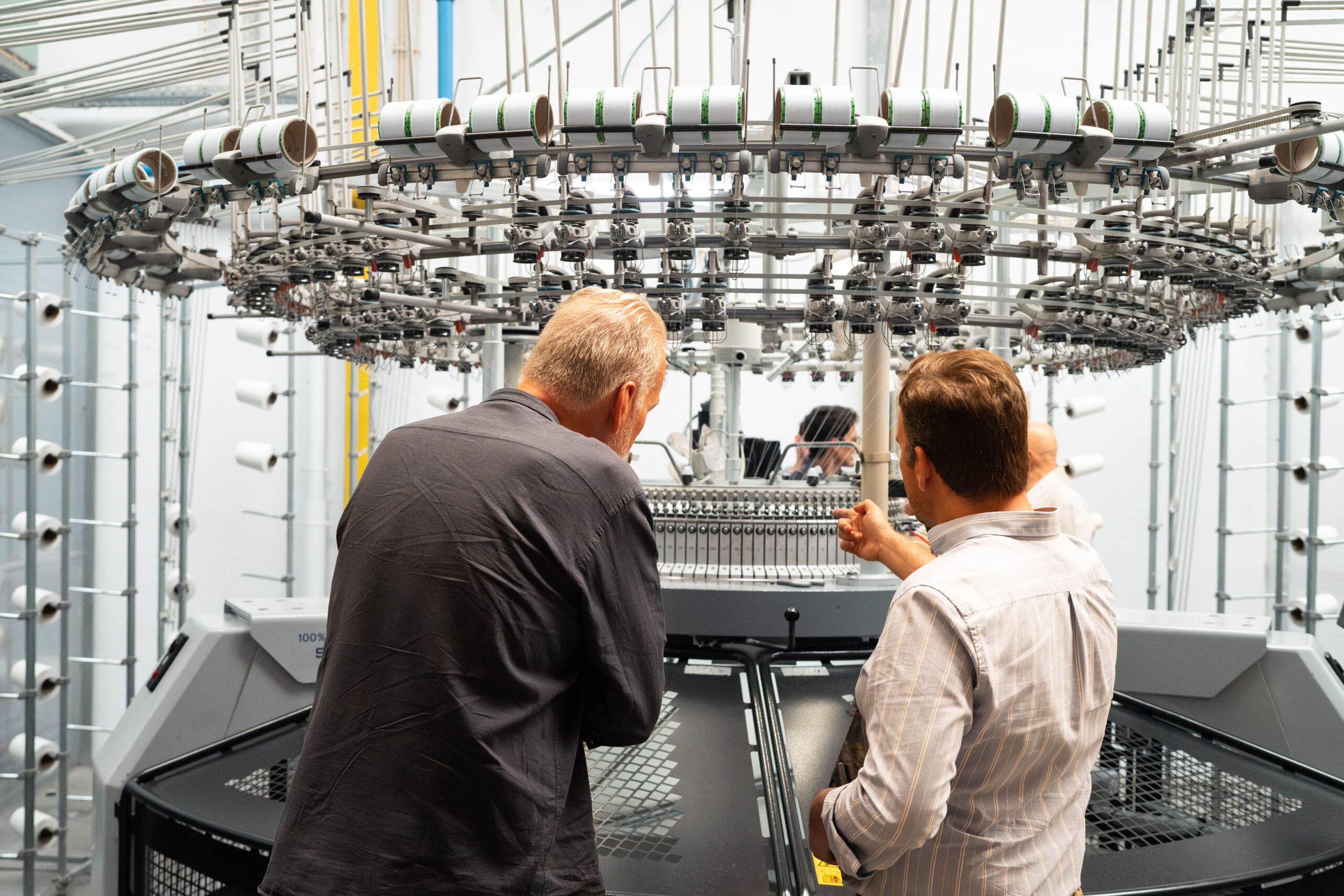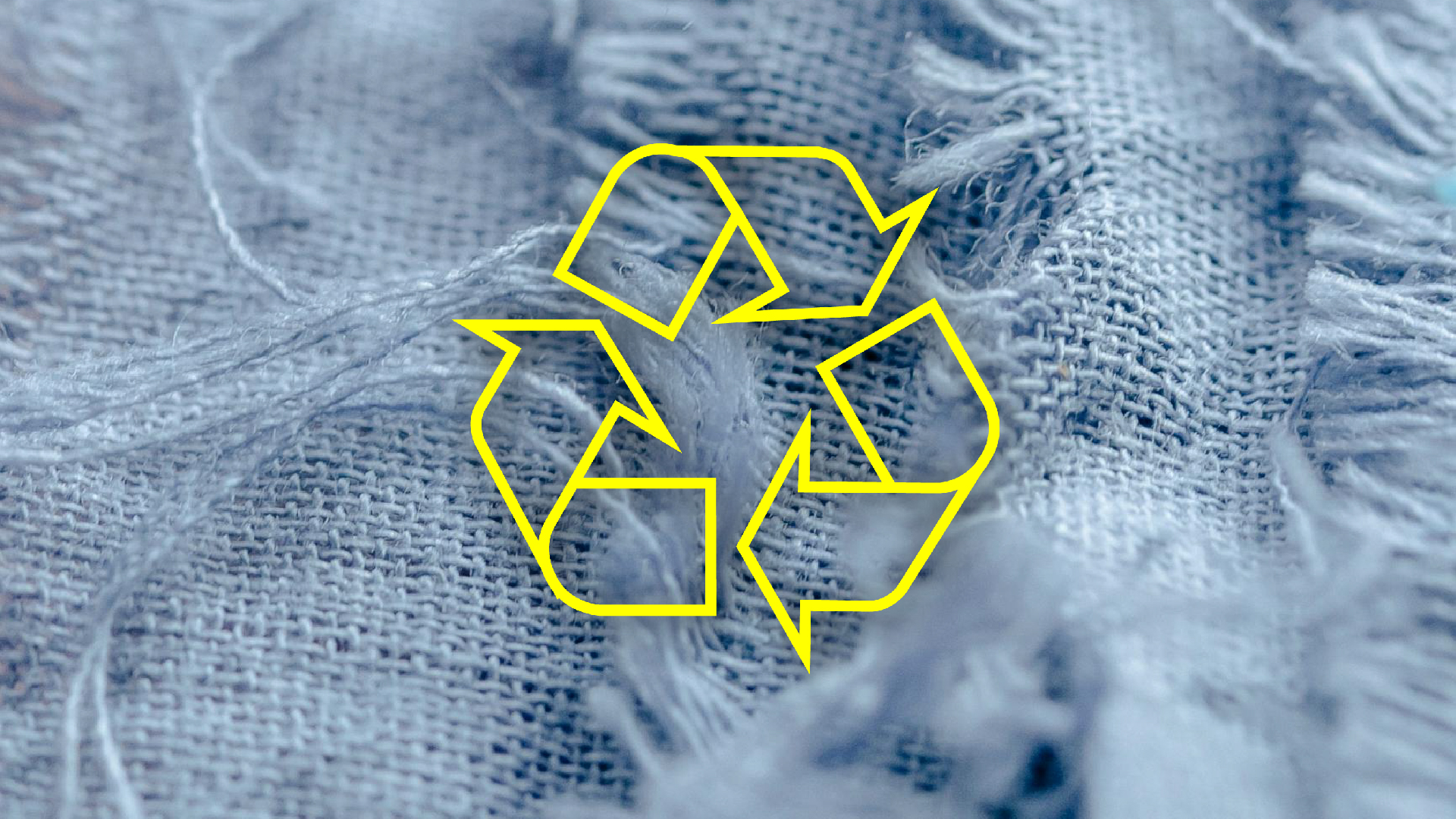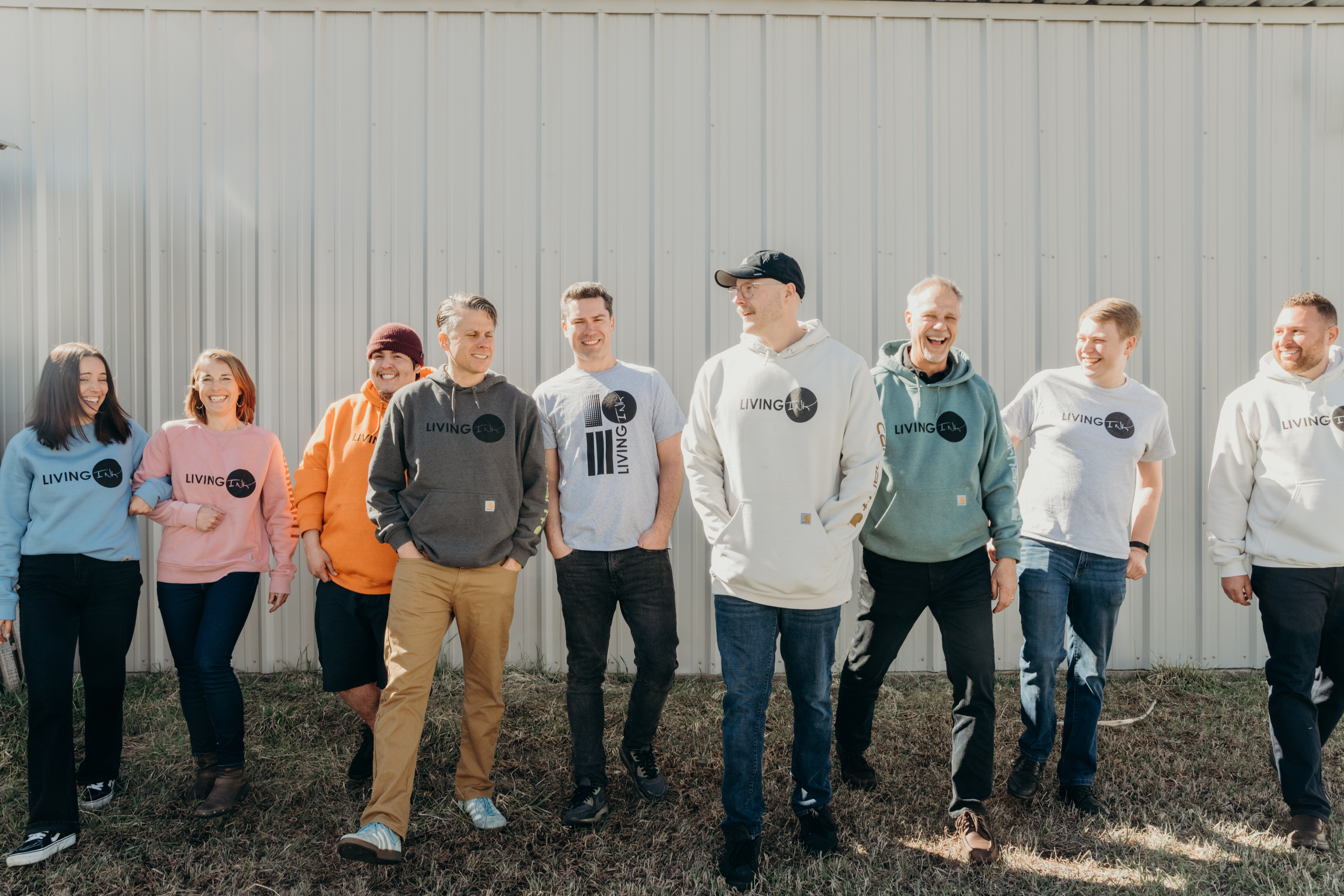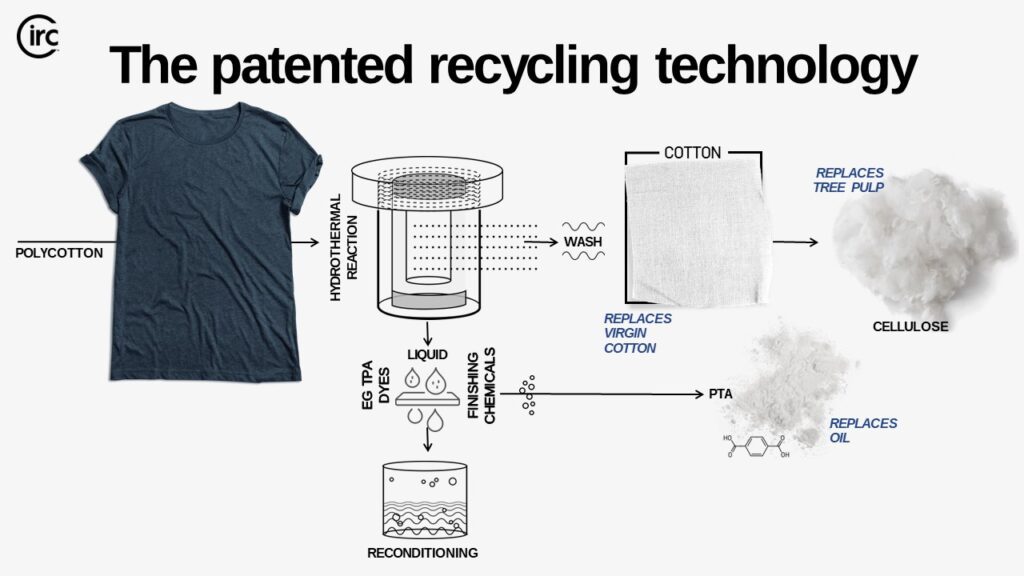Meet the Innovator: Circ
Image by Circ.
9 October 2023
Through our global Innovation Platform, Fashion for Good supports critical innovations on their journey to scale, providing hands-on project management, access to funding and expertise, and collaborations with brands and manufacturers to accelerate implementation in the fashion supply chain. In this series, we are proud to introduce some of the groundbreaking innovators who are driving the change to make fashion a force for good.
Currently, a large percentage of textiles end up in landfills or are incinerated, rather than being recycled or reused. Circ’s technology offers a solution to this problem by recycling polycotton — what the majority of our clothes are made of — into materials that can be re-entered into the fashion supply chain to make new clothing. The innovator’s hydrothermal process takes textile waste and turns them into materials that can be reused.
By separating synthetic fibres (like polyester) from cellulosic content (like cotton, bamboo, lyocell, viscose, etc), they are able to recover the majority of the raw materials in textile waste, producing high quality fibre and reducing our reliance on virgin materials.
KEY MILESTONES
-
2011
Tyton Biosciences is launched to investigate ways of creating biofuels from modified tobacco plants.
-
2017
Tyton Biosciences pivots to focus on the textile industry.
-
2018
Tyton Biosciences joins Fashion for Good for bespoke support on their roadmap to scale.
-
2020
Tyton BioSciences closes $8 million Series A funding round led by Tin Shed Ventures (the investment arm of Patagonia) with additional investment from Marubeni America, Card Sound Capital and Alante Capital.
Tyton BioSciences takes part in the Fashion for Good’s “Full Circle Textiles Project: Scaling Innovations in Cellulosic Recycling”.
Tyton BioSciences rebrands to Circ.
-
2021
CIRC and ANDRITZ partner to commercialise recycling technology.
-
2022
Circ raises over $30 Million in Series B funding led by Breakthrough Energy Ventures (BEV), with additional investment from Inditex, Milliken, Lansdowne, Temasek.
-
2023
Circ raises $25 million in Series B extension funding with investment from Zalando, Avery Dennison and Youngone.
Circ teams up with Zara to launch recycled-fibre collection.
Circ partners with ACEGREEN to manufacture fibre from reclaimed polycotton.
Circ is nominated as one of the finalists of The Earthshot Prize 2023.
This is a high-level process overview of Circ’s patented poly-cotton recycling process. Image by Circ.
WHAT’S NEXT
By 2030, Circ aims to recycle 10 billion garments, representing 10% of the global apparel market, which will save more than 100 million trees.
LINKS
Website: https://circ.earth/
Learn more about Circ’s involvement in the Fashion for Good Full Circle Textiles Project.
Other Articles

In conversation with Smartex: Explore Smartex’s AI-driven solutions transforming quality control and reducing waste

Fashion for Good and Textile Exchange Team Up to Trace Textile Waste


